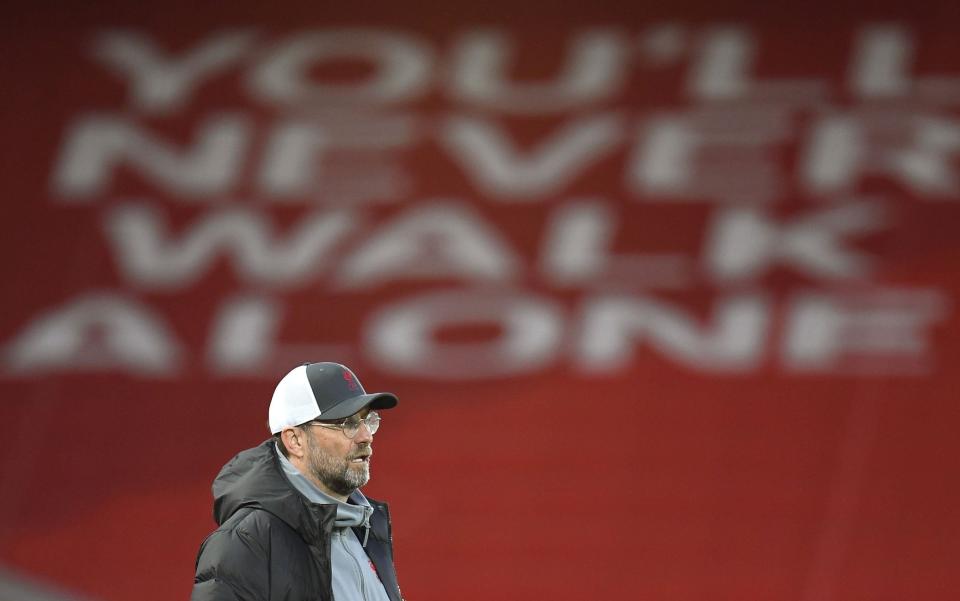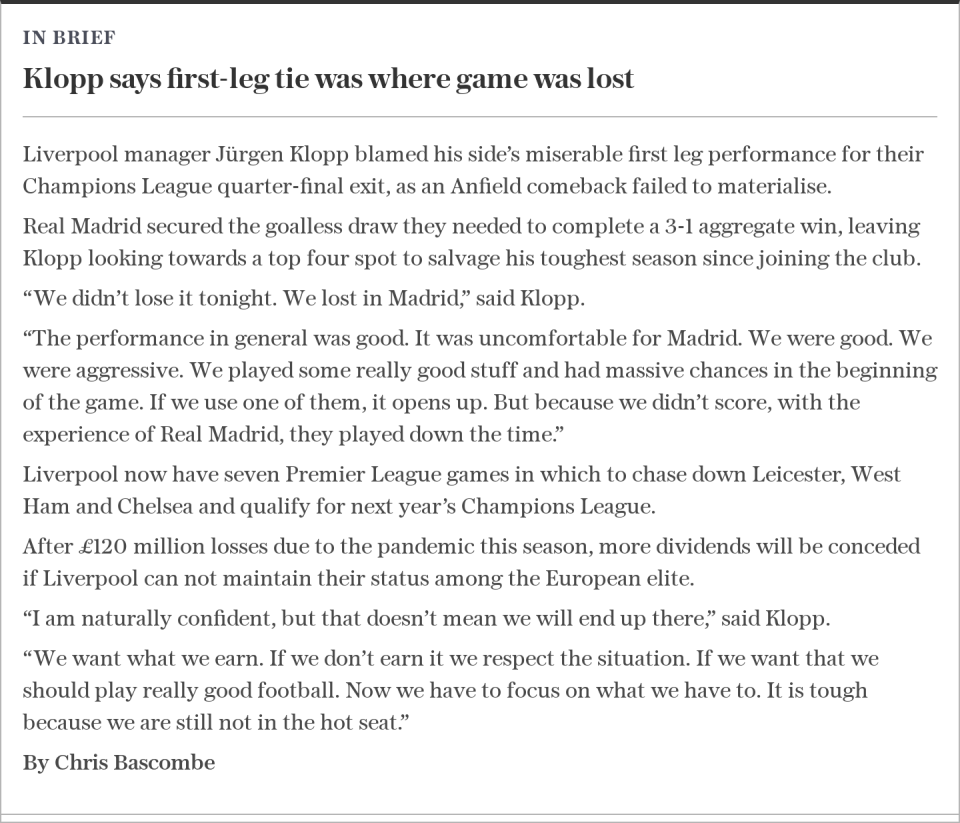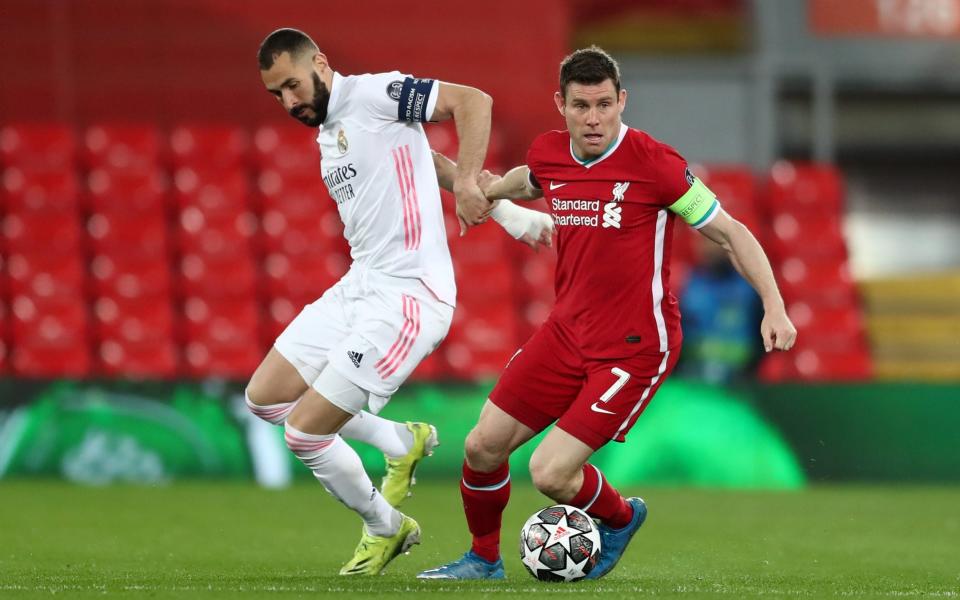Jurgen Klopp must use European setback as catalyst for another Liverpool recovery

The quest for one Anfield comeback is over. At the final whistle against Real Madrid, the start of the next one began for Jürgen Klopp.
Liverpool’s manager can at least take encouragement from a higher standard performance in the Champions League quarter-final exit, even if another stirring night always looked unlikely in such serene surroundings.
Klopp may cling to the positives and reflect how often demoralising defeats to Spanish opposition have been the catalyst for rapid recovery.
Anfield’s reconstruction gathered pace after the loss to Sevilla in the 2016 Europa League final. Liverpool invested smart and big following defeat to Real Madrid in the 2018 Champions League final, and the 3-0 reverse to Barcelona in the 2019 semi-final proved the ultimate assist for the greatest of all Anfield nights.
Now Klopp’s task is to use this expensive loss, and the broader campaign, to plot a fresh Liverpool fightback. The remaining seven league games will determine if he is doing so with Champions League status.
There is an idea within the club – one which Klopp supports – that normal service will resume on and off the pitch when the centre-backs and supporters return. Given the scale of downturn over the past nine months, that sounds optimistic. Changes of personnel can only be minimal if the additions are of immense stature.

After the last defeat to Real three years ago, Alisson Becker and Fabinho proved themselves indispensable, game-changing recruits.
Here, the two stellar signing of last summer – Thiago Alcantara and Diogo Jota – were omitted from Klopp’s starting line-up. That was telling, albeit Jota’s potential is unquestionable. Whatever Thiago and Jota’s qualities, if they are not considered guaranteed starters for a game of this magnitude, the club must step up their search to find those who are to enhance next year’s Premier League title challenge, otherwise Klopp will have little option but to keep asking the same players to go to the well.
Aside from the inclusion of two novice centre-backs and absence of skipper Jordan Henderson, this was the same Liverpool team that won the Champions League two years ago.
A manager will inevitably look to those he most trusts when the moment of truth arrives – and the individual and collective performance in this 0-0 draw justified it – but turning to a 35 year-old will always be a nod to the here and now rather than the future.

That is not intended as disrespectful to James Milner, who was so exceptional in the first half, the Real Madrid players seemed to decide the best way to stop Liverpool was to hack down the evergreen midfielder. It was the substitution of Milner when he ran out of steam after an hour which signalled Liverpool’s desperation far more than his initial selection.
Milner’s energy and impact was such that it highlighted where Liverpool went so wrong last week. But after a season where there has been so much focus on the loss of centre-halves – and in which Mohamed Salah has continued to maintain his goal rate – the curiosity remains how collectively inefficient they have been in front of goal.
Too many encouraging moves have ended with a pass too many, or a poor touch where once there was an instant finish.
Too often retreating defenders have been given the opportunity to make amends for carelessness, Liverpool’s red arrows no longer travelling at the same velocity. Sadio Mane has lost confidence in the final third, and Roberto Firmino has been erratic. The start of next season seems especially important to the duo as they look to prove that is no more than a consequence of prolonged, energy-sapping endeavours in extraordinary times.
Even had Liverpool progressed through this tie, Klopp is realistic and experienced enough to know it would have had more in common with the imperfections of the runs in the 2016 Europa League and 2018 Champions League rather than triumph in 2019.
The greatest club competition magnifies strengths and flaws. Only a potent combination of perfectly balanced, consistent football and well-timed good fortune can bring success. Liverpool have been bereft of both all season.
Dethroned in the Premier League and defeated in Europe, no-one at Anfield dared imagine they would reach this stage of the campaign needing to catch West Ham to save it.

 Yahoo Sport
Yahoo Sport 





































